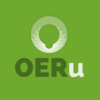Diploma of Arts - Anchor Partner Participation Scenario
|
A few thoughts on the Open Curriculum and an associated outline of an Anchor Partner Participation Scenario, which I hope will expedite proceedings at the forthcoming Anchor Partners Planning Meeting, to be scheduled in late September 2011:
Potential anchor partners are naturally interested in how each institution might best contribute specific courses to the OERu initiative. In preliminary discussion among existing partners we have used the Australian context of the USQ Diploma of Arts (DART) as a potentially useful starting point: http://www.usq.edu.au/handbook/current/arts/DART.html
The DART program aims to provide students with an introduction to study in Arts disciplines and programs, and to provide a basic qualification for credit transfer/exemption in other programs. In effect, the Diploma of Arts is available as an entry point for most USQ programs not subject to auditions and interview requirements. This program should appeal to those students who want to sample a range of university subjects before embarking on a more specialised degree program. The program offers substantial choice and flexibility, allowing entry to a wide range of career and study options, including transfer to other degree programs. For example, the DART provides articulation into the following USQ undergraduate programs: Bachelor of Arts; Bachelor of Arts and Bachelor of Business; Bachelor of Arts and Bachelor of Science; Bachelor of Creative Arts; Bachelor of International Studies; Bachelor of Communication; Bachelor of Social Science. In many respects, it could be regarded as a step towards a transdisciplinary foundation year.
Diploma of Arts Program Aims
The program aims to provide students with an introduction to university study by a free selection of courses from across the University and to produce diplomates who have:
- demonstrated competencies in communication skills necessary for further academic study in appropriate discipline areas
- acquired basic knowledge in one or more disciplines in a relevant degree program.
Diploma of Arts Program Objectives
To produce diplomates who have:
- an awareness of the nature of study in the arts, humanities, and social sciences
- developed foundation knowledge, skills and competencies in at least one discipline area
- a fundamental ability to express thoughts with clarity and coherence in written and/or oral forms
- acquired sufficient knowledge to make informed choices about possible further study.
To explore the current range of courses from which students may choose, please review the program structure: http://www.usq.edu.au/handbook/current/arts/DART.html#programprogram.structure
Anchor partner participation scenario
In the broader context of OERu, in the first instance anchor partners in the OERTen could contribute a small number of courses at the foundation level. For example, with just 4 partners offering 3 courses each, there would be a total of 12 courses with students able to select 8 from12 to gain a Diploma of Arts, equivalent to the first year of a Bachelor’s degree. With more anchor partners it would of course be possible to extend the range of courses offered across disciplines to extend the transdisciplinary nature of the Diploma. Again using the Australian context as a reference point, with 10 institutions offering just 3 courses, students could have a choice of studying 24 from 30 courses for the equivalent of a three year Bachelor’s degree in transdisciplinary studies. The structure of the open curriculum will be discussed in detail at the forthcoming Anchor Partners Meeting to be scheduled in late September in New Zealand. Associated issues of guaranteed cross credit between anchor partner institutions, and relevant national qualifications frameworks will also be on the agenda.
